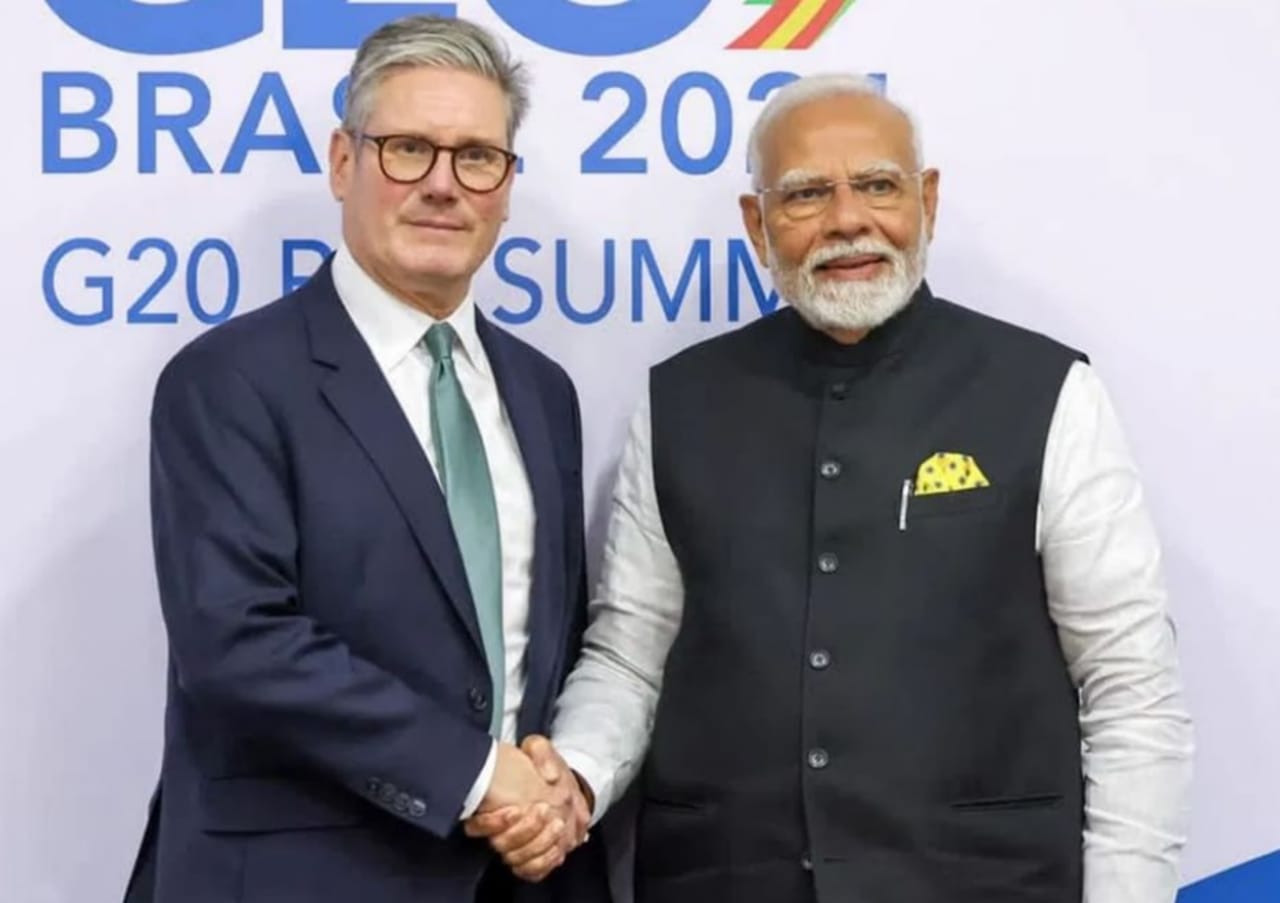
Indian Prime Minister Narendra Modi arrived in the United Kingdom on Wednesday, 23 July, to formally sign a long-awaited free trade agreement with British Prime Minister Sir Keir Starmer. The landmark deal, finalised in May after nearly three years of negotiations, is set to deepen bilateral economic ties and boost trade between the two countries.
The agreement will see India reduce tariffs on a range of British goods, including Scotch whisky, gin, cars and other high-value exports. In return, the United Kingdom will open its markets further to Indian exports such as textiles, gems and jewellery. Indian manufacturers will also gain access to the British market for electric and hybrid vehicles.
“This is a historic milestone that is ambitious and mutually beneficial,” Mr Modi said in a post on social media platform X when the deal was finalised earlier this year. “It will catalyse trade, investment, growth, job creation and innovation in both our economies.”
The UK government has said the agreement is expected to boost the British economy by £4.8 billion annually. According to projections, bilateral trade could grow by an additional £25.5 billion by 2040. In 2024, trade between India and the UK reached £42.6 billion, reflecting the growing importance of the economic partnership.
Prime Minister Starmer hailed the agreement as a “landmark” achievement for the country. “It will create thousands of British jobs across the UK, unlock new opportunities for businesses and drive growth,” he said on Wednesday.
Although the deal has been cleared by India’s cabinet, according to the Press Trust of India, it will still need approval from the UK Parliament. Experts suggest it may take up to a year before the agreement comes into full effect.
During his brief visit, Prime Minister Modi is also scheduled to meet King Charles III and attend a high-level diplomatic luncheon. This is Modi’s fourth visit to the United Kingdom since he assumed office in 2014, underlining the significance India places on its ties with Britain.
Aside from trade, the two leaders are expected to discuss recent developments of concern, including the tragic crash of an Air India flight last month. The aircraft, bound for London, crashed during take-off from Ahmedabad in Gujarat, killing all 260 passengers and crew on board. Both sides are likely to discuss the progress of the ongoing investigation into the incident.
Analysts view this trade agreement as a cornerstone in the evolving India–UK strategic partnership, with implications extending beyond commerce to technology, defence and climate cooperation. It also marks the UK’s most significant trade deal since its departure from the European Union.
As diplomatic engagements continue, all eyes will be on how swiftly both nations can bring the agreement into force, potentially redefining one of the 21st century’s most important international economic relationships.